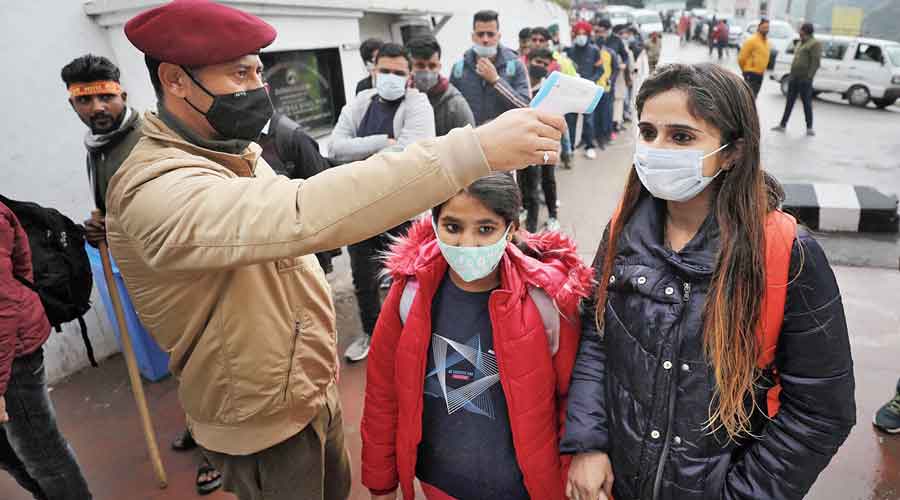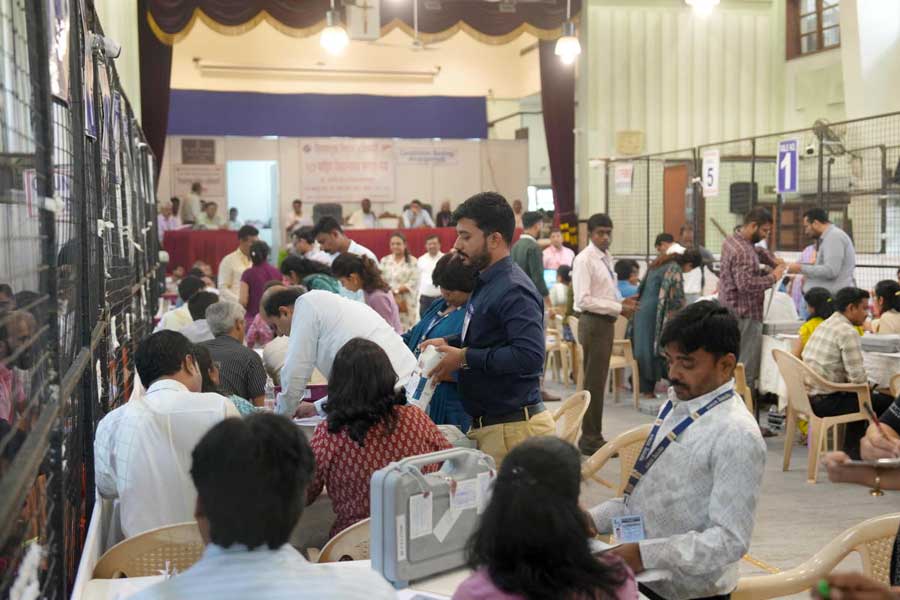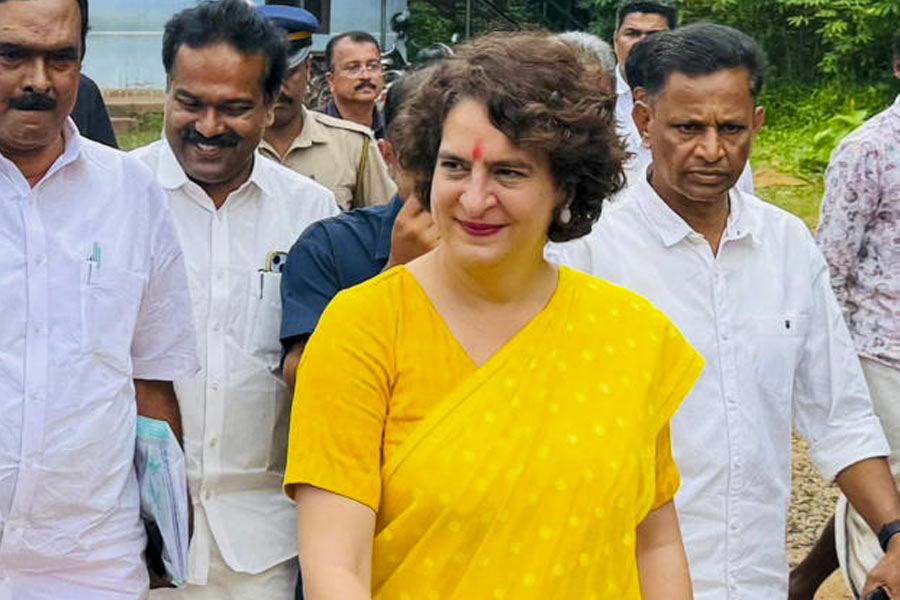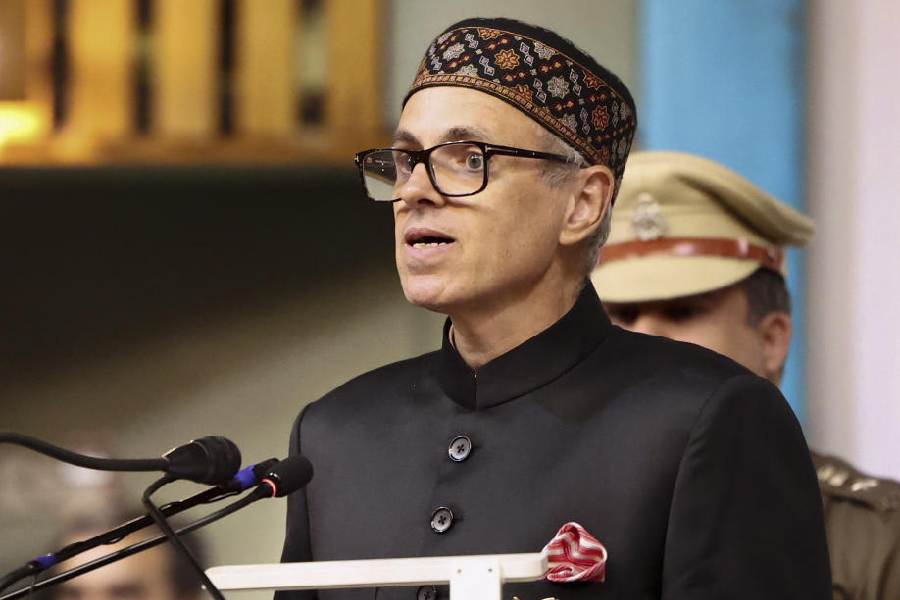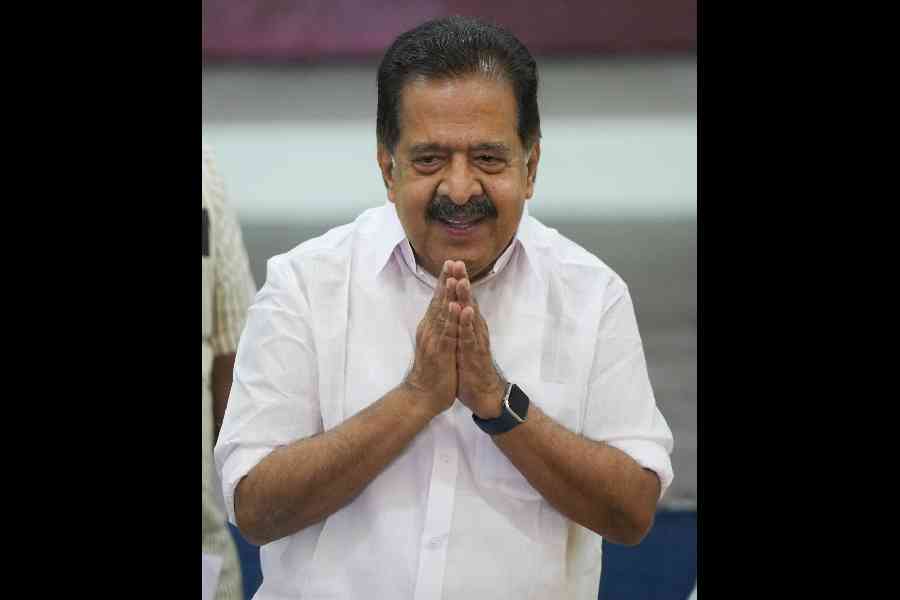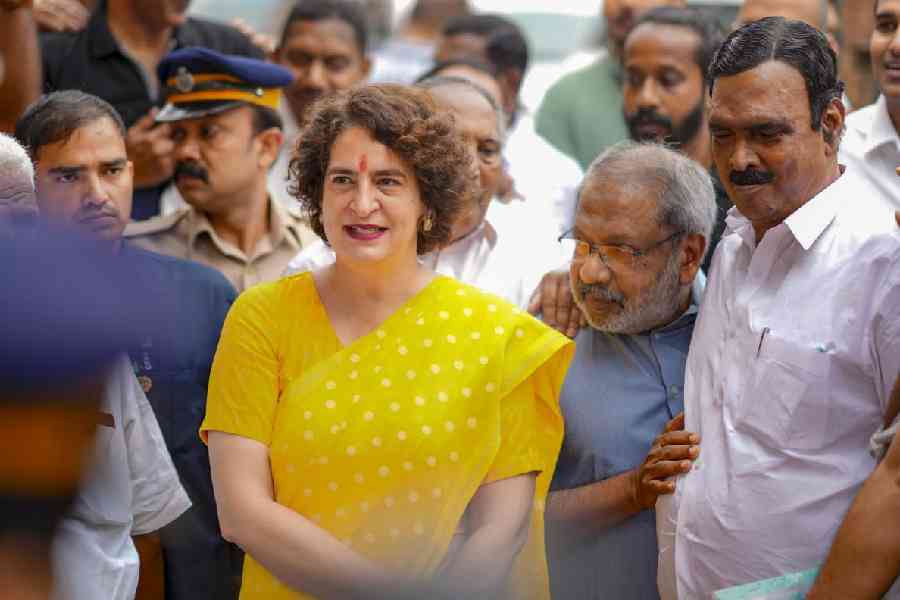India’s currently shrinking Covid-19 epidemic is almost certain to reverse course and flare up into an omicron-driven third wave of infections, experts guiding the Centre’s pandemic response said on Tuesday as the country’s omicron count rose to 200.
The experts said the apparent lack of omicron-driven surges documented anywhere in the country merely implies that omicron cases have not reached a critical count threshold yet beyond which the numbers of infections start to balloon.
“We will see an omicron wave — this is guaranteed,” said Anurag Agrawal, a pulmonary medicine specialist-turned-scientist and director of the Institute of Genomics and Integrative Biology in New Delhi.
“But when it will start, how long it will last and how high it will rise are questions to which no one has answers for now,” he told The Telegraph.
The Union health ministry’s cumulative omicron counts until Tuesday include 54 each in Maharashtra and Delhi, 20 in Telangana, 19 in Karnataka, 18 in Rajasthan, 15 in Kerala, 14 in Gujarat, two each in Uttar Pradesh and Odisha, and one each in Andhra Pradesh, Bengal, Chandigarh and Tamil Nadu.
The ministry also asked states to prepare to respond to the growing omicron counts and any signs of surges in Covid-19 cases, citing evidence from elsewhere that omicron is three-fold more transmissible than delta, the variant that had fuelled India’s second wave.
Health secretary Rajesh Bhushan, in a letter sent on Tuesday to top state officials, said authorities would need to enforce district-level containment and restrictions if either the test positivity rate rises to 10 per cent or higher for a week or if oxygen-supported bed occupancy exceeds 40 per cent.
The ministry has also asked states to bolster hospital preparedness. The cut-offs for containment and restrictions are in line with guidelines from the Indian Council of Medical Research that experts say are intended to trigger early actions to prevent large case numbers from overwhelming hospital resources.
Over the past month since omicron surfaced in Bangalore on November 22, India’s average daily new Covid-19 infections have continued to decline — from a seven-day average of 10,000 cases on November 22 to 6,900 on December 20. On Tuesday, the country recorded 5,326 new cases.
The lack of omicron-linked surges in India so far contrasts with the dramatic rise in infections caused by the strain across South Africa, Denmark, the UK and elsewhere. In South Africa, for instance, seven-day average counts of daily new cases increased from 3,300 to 22,000 over three weeks. In Denmark and the UK, daily new cases nearly doubled between December 1 and December 20.
Health experts say India’s large geographical area and the current scattered pattern of documented omicron cases so far might help explain the lack of observed surges. Omicron’s spread will depend entirely on the opportunities it gets to infect susceptible people.
“It is only a matter of time — a critical mass of people need to get infected with omicron, then numbers will start exploding,” said Sandeep Budhiraja, an internal medicine specialist at Max Healthcare, New Delhi, who has advised the Delhi government.
Some believe the omicron-driven surges in both South Africa and the UK might provide previews of how the forthcoming wave will play out in India.
“Just as in South Africa, we have a large proportion of the population with immunity from prior Covid-19 infections and as in the UK, we have a significant proportion of vaccinated people,” said Agrawal. “Some areas and populations in India will be like South Africa and some will be like the UK.”
The size and duration of the next wave will depend on how efficiently districts and states adopt public health measures such as those outlined by the health ministry, several experts have said.
They also believe India is better prepared now than it was ahead of the second wave. India now has a sizeable population with hybrid immunity — a mix of immune responses triggered by prior Covid-19 infection and the vaccines.
“It is too early now to say anything about disease severity, but we’re hoping that existing immune responses will offer some protection from severe disease or deaths,” said Agrawal, who has advised several states on Covid-19 genome sequencing to guide responses to the epidemic.
In several countries, including South Africa, Denmark, the UK and the US, omicron has become the dominant variant, replacing circulating strains such as delta. “There is no reason to believe that the variant will not do the same thing here in India,” Budhiraja said.
Available evidence from South Africa and Europe so far indicates that omicron infected patients have not required the level of hospital care as observed during earlier Covid-19 waves. “This gives us hope, but we have a large population and even a small fraction of severe cases could be large in absolute numbers,” Budhiraja said.
The key to averting a large wave lies in containment actions, said a public health specialist with the ICMR, the government’s health research agency. The ICMR had earlier this year issued guidelines for district authorities on containment actions.


